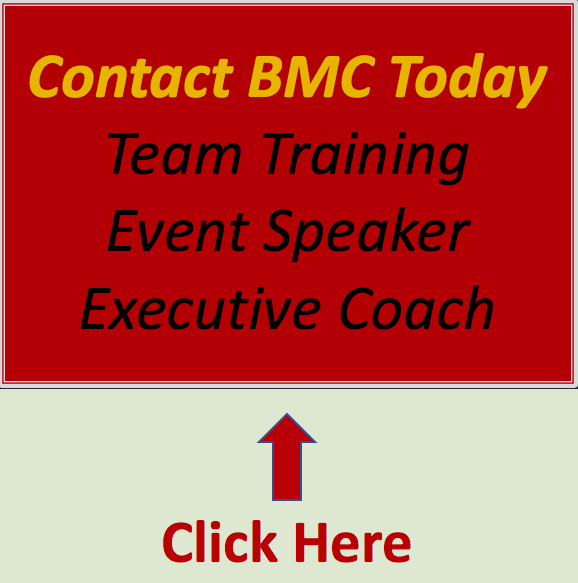How To Build Employee Commitment
/Employee commitment is one of the most important qualities leaders can cultivate with their team; it is a powerful asset - a multiplier of productivity, creativity and loyalty. The beauty is that people like you and me like to commit; committing makes us feel part of something important. But we will not commit if we feel we are being neglected, taken advantage of, abused, excluded, under-appreciated or lied to (I’m sure you can think of others to add to this list).
What Do I Mean By Commitment?
Commitment is built when people add their voice to a conversation or brainstorming meeting and their voice is respected and considered. Even if their idea didn’t make it into the final decision, because their voice was respected and valued during the process, they begin to fully invest in the decision the team made. This is an example of a strong corporate culture and how trust and healthy conflict lead to building employee commitment at work.
Studies prove there is a direct and measurable link between commitment and employee performance factors like transparency, creativity, productivity, work quality and turnover. For example, when employee commitment is high, turnover is almost always low while transparency, creativity, productivity and quality of work are high. When employee commitment is low, turnover is almost always high while most other measurement criteria are low.
Not surprising, without commitment the success of every project is in jeopardy. Because commitment is critical to success, it is important leaders cultivate commitment and know how to inspire the employees they support. Traditionally, companies focused on job security and money as primary motivators. While that approach may have been great in the 1950’s, it is not a great option with today’s four-generations of highly educated, multicultural employees working within a fast-paced global economy.
Diving Deeper Into How To Build Commitment
Let’s not even bother discussing the myth of job security in today’s economy. And, even though getting paid a fair wage is important, money is no longer a good motivator. Money and the hope of a raise 12 months from now have a poor track record at inspiring most people to do more than what is required to get a ‘meets expectations’ at their next annual review. Even bonuses quickly become expected and turn into what is called a ‘hygiene motivator’ (without it you would not be able to attract new employees and current employees would stop showing up). If you don’t agree, try eliminating bonuses and just watch your employee turnover increase exponentially while performance and employee morale drop like a stone. But all hope of building commitment is not lost, there are far more effective (and virtually free) motivators known as intrinsic motivators.
I introduce the top 10 motivators in my Leadership Training courses, but for the purpose of this article let me share the following top five intrinsic motivators that brilliantly build commitment and workplace excellence:
Being respected and valued at work
Doing interesting and challenging work
Professional development / opportunities
Achieving something / doing something important
Being given greater responsibility
Take a moment to let it sink in that ‘being respected and valued at work’ is frequently rated the #1 motivator to help build employee commitment. This is no surprise because everyone, no matter what work they do or how long they’ve been working want to be respected and valued. You know this is true because I am certain this is one of your key motivators.
Being respected and valued also ties into a basic human need to be ‘seen’ and ‘included’, to have our voices heard. It is our inborn and intrinsic desire to matter; we all want to make a difference. When you think of it, being respected and valued fits perfectly into any organizations plan to improve diversity and inclusion (D&I). Because intrinsic motivators are so important, let’s look at how both leaders and employees can use them to drive personal and professional success:
As a leader I believe one of our most important jobs is to learn - to be curious about which intrinsic motivators inspire each member of our team. Remember, people are individuals and everyone will be motivated by different things at different intensities. One person may be motivated by doing interesting and challenging work while another is motivated by professional development / opportunities.
As an employee I believe one of our most important jobs is to determine which motivators are most important to us and to then share that information with our leader; help our leader (and frankly other members of our team), inspire us. For example, perhaps you want greater responsibility and professional development opportunities because you want your career to grow. If this is you then make sure your leader knows and doesn’t have to guess at what your future ambitions are and how to help you / motivate you because they may think you are content with your position and therefore doing interesting and challenging work will keep you inspired and committed to excellence.
Live The Company Values:
As important as motivation is to cultivate commitment, leaders must also demonstrate integrity. One of the easiest ways I've found to do that is to live the company values. Two of the most important values I’ve discussed in previous articles that demonstrate how a leader can build commitment are:
To trust and be trustworthy (to be dependable)
Show respect (by giving everyone the opportunity to share ideas)
I believe these values (which are part of almost every organizations core value set), have a symbiotic relationship; you either have both or you have neither. For example, if an employee doesn’t trust their leader they will never freely share their ideas.
When it comes to gaining employee commitment to a plan, the best way to do this is to have each person add their unique expertise, education and lived experience to the solution. Employees have to trust each other and their leader to be honest, transparent, and respectful. It means not ever feeling attacked or made fun of when we share our ideas or experience. It also means that if my boss needs to share constructive feedback with me, I am confident I will be respected and can trust their feedback comes from a place of making me, the team, the project and the company better. Note: That feedback should also be timely - delivered as soon as possible within a private conversation.
For me, one other element is needed to cultivate commitment within a team. I have always found it important to create a workspace culture that helps employees learn about each other and from each other. I believe this familiarity reinforces the idea that we all have something to say and something to learn. Many professionals recommend activities that help employees discover what they have in common. I like those - but I also like activities that help employees learn what is different / unique about each other. I believe this helps them understand each other’s unique contribution potential.
When a team knows they can trust their leader and each-other, that is when they will do their best work… and feel proud an energized at the same time.
Conclusion:
Building commitment at work isn’t always easy but it’s a priority of every successful leader that I know. A conscious decision to build employee commitment really does make a difference. I’ve seen mediocre teams transform into high-performing teams in months when they got a new leader… and I’ve seen high-performing teams unravel in weeks when they got a poor leader.
One last observation about commitment (I did not want to scare you above). Commitment has many layers (holding back a reference to the children’s movie Shrek). I believe there are four key places where individuals channel our commitment.
Commitment to ourselves and our work (and our family / friends)
Commitment to our leader
Commitment to our team (or project teams)
Commitment to our company
For the purpose of this article, perhaps you don’t need to focus on these - what I’ve shared above might be the most important for now. But, do keep these four areas in the back of your mind. They may help explain behaviour as you see it unfold.
TRUST Bonus:
To build trust everyone has to understand what behaviour is appropriate and what is not appropriate…. and to be held accountable. For example, Alan Mulally (one of the most successful and celebrated leaders and former CEO of Boeing and Ford) has 11 Working Together Principles and Practices. Four of those are:
Everyone included
Clear performance goals
One plan
Respect, listen, help and appreciate each other
Thank you for reading. I will enjoy hearing your comments, feedback and even examples about employee commitment at work.
Bruce
About Bruce and Bruce Mayhew Consulting.
Bruce is Corporate Trainer, Keynote Speaker and Executive Coach.
Bruce Mayhew Consulting specializes in customized Email Etiquette Training, Leadership & New Leadership Development, Generational Differences, Time Management Training and other soft skills training solutions in Toronto and across Canada. Bruce is also an Executive Coach to a few select clients.
Bruce is an experienced motivational speaker in Toronto and has inspired audiences across Canada and within the USA and the UK. Bruce works hard to always make sure your training event, conference, retreat, or annual general meeting is a success.
Thank you for stopping by.



